
Catherine of Aragon was Queen of England as the first wife of King Henry VIII from their marriage on 11 June 1509 until their annulment on 23 May 1533. Born in Spain, she was Princess of Wales while married to Henry's elder brother, Arthur, Prince of Wales, for a short period before his death.
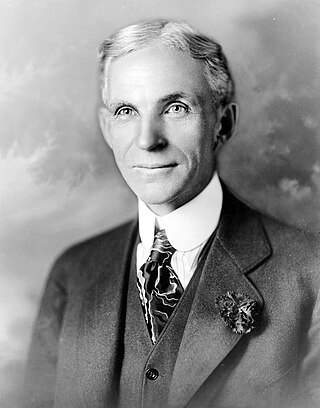
Henry Ford was an American industrialist and business magnate. He was the founder of Ford Motor Company, and chief developer of the assembly line technique of mass production. Ford created the first automobile that middle-class Americans could afford, and his conversion of the automobile from an expensive luxury into an accessible conveyance profoundly impacted the landscape of the 20th century.

Henry Alfred Kissinger is an American diplomat, political theorist, geopolitical consultant, and politician who served as United States secretary of state and national security advisor under the presidential administrations of Richard Nixon and Gerald Ford. For his actions negotiating a ceasefire in Vietnam, Kissinger received the 1973 Nobel Peace Prize under controversial circumstances.

Henry I, also known as Henry Beauclerc, was King of England from 1100 to his death in 1135. He was the fourth son of William the Conqueror and was educated in Latin and the liberal arts. On William's death in 1087, Henry's elder brothers Robert Curthose and William Rufus inherited Normandy and England, respectively, but Henry was left landless. He purchased the County of Cotentin in western Normandy from Robert, but his brothers deposed him in 1091. He gradually rebuilt his power base in the Cotentin and allied himself with William Rufus against Robert.

Henry VII was King of England from his seizure of the crown on 22 August 1485 until his death in 1509. He was the first of the House of Tudor to become king.

Henry VIII was King of England from 1509 until his death in 1547.

Mary I, also known as Mary Tudor, and as "Bloody Mary" by her Protestant opponents, was Queen of England and Ireland from July 1553 and Queen of Spain as the wife of King Philip II from January 1556 until her death in 1558. She is best known for her vigorous attempt to reverse the English Reformation, which had begun during the reign of her father, King Henry VIII. Her attempt to restore to the Church the property confiscated in the previous two reigns was largely thwarted by Parliament, but during her five-year reign, Mary had over 280 religious dissenters burned at the stake in the Marian persecutions.

Anne Boleyn was Queen of England from 1533 to 1536, as the second wife of King Henry VIII. The circumstances of her marriage and of her execution by beheading for treason and other charges made her a key figure in the political and religious upheaval that marked the start of the English Reformation.
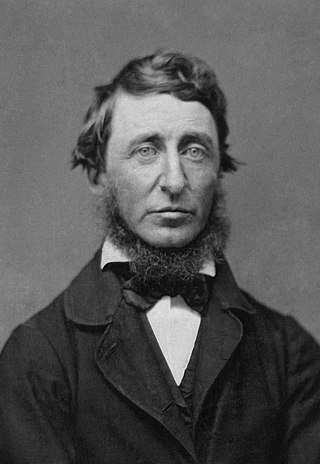
Henry David Thoreau was an American naturalist, essayist, poet, and philosopher. A leading transcendentalist, he is best known for his book Walden, a reflection upon simple living in natural surroundings, and his essay "Civil Disobedience", an argument for disobedience to an unjust state.
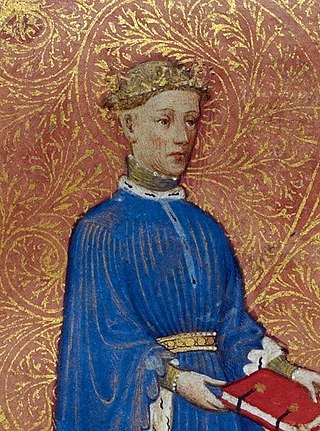
Henry V, also called Henry of Monmouth, was King of England from 1413 until his death in 1422. Despite his relatively short reign, Henry's outstanding military successes in the Hundred Years' War against France made England one of the strongest military powers in Europe. Immortalised in Shakespeare's "Henriad" plays, Henry is known and celebrated as one of the greatest warrior-kings of medieval England.

Henry III, also known as Henry of Winchester, was King of England, Lord of Ireland, and Duke of Aquitaine from 1216 until his death in 1272. The son of King John and Isabella of Angoulême, Henry assumed the throne when he was only nine in the middle of the First Barons' War. Cardinal Guala Bicchieri declared the war against the rebel barons to be a religious crusade and Henry's forces, led by William Marshal, defeated the rebels at the battles of Lincoln and Sandwich in 1217. Henry promised to abide by the Great Charter of 1225, a later version of the 1215 Magna Carta, which limited royal power and protected the rights of the major barons. His early rule was dominated first by Hubert de Burgh and then Peter des Roches, who re-established royal authority after the war. In 1230, the King attempted to reconquer the provinces of France that had once belonged to his father, but the invasion was a debacle. A revolt led by William Marshal's son Richard broke out in 1232, ending in a peace settlement negotiated by the Church.

Henry VI was King of England from 1422 to 1461 and again from 1470 to 1471, and disputed King of France from 1422 to 1453. The only child of Henry V, he succeeded to the English throne at the age of nine months upon his father's death, and succeeded to the French throne on the death of his maternal grandfather, Charles VI, shortly afterwards.

Henry IV, also known as Henry Bolingbroke, was King of England from 1399 to 1413. His grandfather King Edward III had claimed the French throne as a grandson of Philip IV of France, and Henry continued this claim. He was the first English ruler since the Norman Conquest, over three hundred years prior, whose mother tongue was English rather than French.

Henry IV, also known by the epithets Good King Henry or Henry the Great, was King of Navarre from 1572 and King of France from 1589 to 1610. He was the first monarch of France from the House of Bourbon, a cadet branch of the Capetian dynasty. He was assassinated in 1610 by François Ravaillac, a Catholic zealot, and was succeeded by his son Louis XIII.
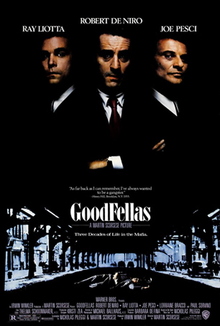
Goodfellas is a 1990 American biographical crime film directed by Martin Scorsese, written by Nicholas Pileggi and Scorsese, and produced by Irwin Winkler. It is a film adaptation of the 1985 nonfiction book Wiseguy by Pileggi. Starring Robert De Niro, Ray Liotta, Joe Pesci, Lorraine Bracco and Paul Sorvino, the film narrates the rise and fall of mob associate Henry Hill and his friends and family from 1955 to 1980.

Thierry Daniel Henry is a French professional football coach, pundit, and former player. He is considered one of the greatest strikers of all time, and one the greatest players of the Premier League history. He has been named Arsenal F.C's greatest ever player. Henry was runner-up for both the Ballon d'Or in 2003 and the FIFA World Player of the Year in 2003 and 2004. He was named the FWA Footballer of the Year a record three times, the PFA Players' Player of the Year a joint-record two times, and was named in the PFA Team of the Year six consecutive times. He was also included in the FIFA FIFPro World XI once and the UEFA Team of the Year five times. In 2004, Henry was named by Pelé in the FIFA 100 list of the world's greatest living players.

The House of Plantagenet was a royal house which originated from the lands of Anjou in France. The family held the English throne from 1154 to 1485, when Richard III died in battle.

Henry William Dalgliesh Cavill is a British actor. He is known for his portrayal of Charles Brandon in Showtime's The Tudors (2007–2010), DC Comics character Superman in the DC Extended Universe (2013–2022), Geralt of Rivia in the Netflix fantasy series The Witcher (2019–2023), and Sherlock Holmes in the Netflix film Enola Holmes (2020) and its 2022 sequel.

Henry II was King of England from 1154 until his death in 1189. At various points in his life, he controlled England; substantial parts of Wales and Ireland; and a large part of France, an area that was later called the Angevin Empire. At times, Henry also held a strong influence over Scotland and the Duchy of Brittany.
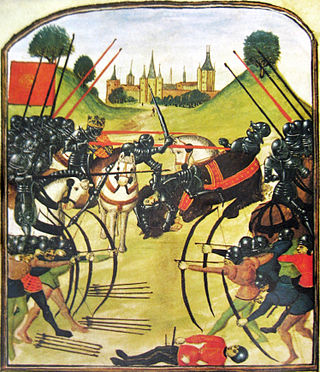
The Wars of the Roses (1455–1487), known at the time and for more than a century after as the Civil Wars, were a series of civil wars fought over control of the English throne in the mid- to late fifteenth century. These wars were fought between supporters of two rival cadet branches of the royal House of Plantagenet: Lancaster and York. The wars extinguished the male lines of the two branches, leading to the Tudor family inheriting the Lancastrian claim to the throne. Following the war, the Houses of Lancaster and York were united, creating a new royal dynasty and thereby resolving their rival claims. For over thirty years, there were greater and lesser levels of violent conflict between various rival contenders for control of the English monarchy.




















